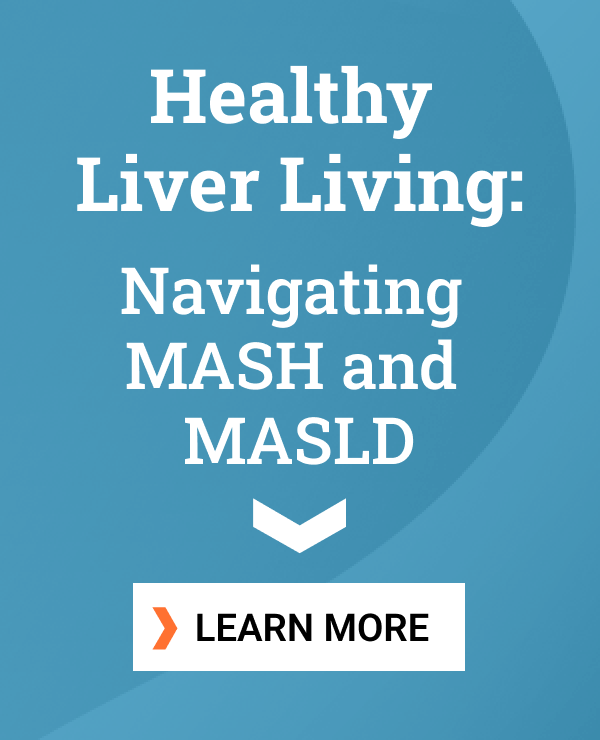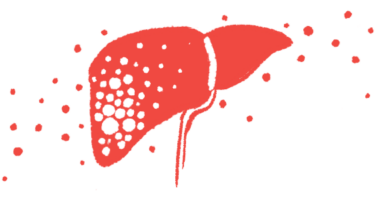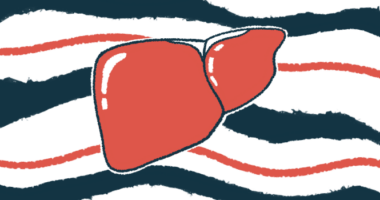Resmetirom, now Rezdiffra, is 1st therapy approved for NASH in US
Oral medicine to treat patients with moderate to severe liver scarring

The U.S. Food and Drug Administration (FDA) has approved Rezdiffra (resmetirom) for the treatment of people with noncirrhotic nonalcoholic steatohepatitis (NASH) — a severe type of fatty liver disease — who have moderate to advanced liver scarring, called fibrosis.
The decision makes Rezdiffra the first NASH therapy to be approved in the U.S.
Importantly, the oral medication, from Madrigal Pharmaceuticals, is indicated for use alongside diet and exercise — critical lifestyle changes that are recommended to manage fatty liver disease.
In its decision, the FDA made use of its accelerated approval pathway, which means that the treatment can be marketed in the U.S. based on preliminary efficacy data, but that additional clinical testing may still be necessary to support a full approval.
“NASH with moderate to advanced liver fibrosis is a serious and progressive liver disease that, until now, has not had an FDA-approved therapy. … We’re excited to deliver Rezdiffra to patients in need,” Bill Sibold, CEO of Madrigal, said in a company press release.
Treatment now under review in EU, where there are no NASH treatments
The therapy now is also up for potential approval in the European Union, where there similarly are no approved treatments for the severe liver disease.
Last week, the European Medicines Agency (EMA) agreed to review an application for resmetirom’s approval in the EU. It’s now under evaluation with the EMA’s Committee for Medicinal Products for Human Use.
NASH, which was recently reclassified as metabolic dysfunction-associated steatohepatitis or MASH, is a severe liver disease in which the buildup of fatty deposits in the liver causes inflammation and fibrosis. This can eventually lead to irreversible liver damage and permanent scarring, known as cirrhosis.
Rezdiffra is a once-daily therapy designed to activate a protein called thyroid hormone receptor beta, or THR-beta. This protein’s activity is impaired in the liver of NASH patients, which increases the risk of disease progression and liver fibrosis. By increasing THR-beta activity, the therapy aims to slow the progression of NASH and prevent additional scarring.
In announcing the therapy’s approval, Sibold credited Madrigal’s founder Rebecca Taub, who serves as the company’s chief medical officer and president of research & development.
“The accelerated approval of Rezdiffra is a culmination of more than 15 years of research from our founder Dr. Becky Taub and a small R&D team that took on one of the biggest challenges in drug development,” Sibold said.
“This is a historic moment for the NASH field and represents the best of what our industry is capable of,” Sibold added.
Rezdiffra approval backed by positive Phase 1, 2 and 3 trial data
The accelerated approval of Rezdiffra was backed by a portfolio of Phase 1, 2, and 3 trial data, including recently published findings from the ongoing, pivotal MAESTRO-NASH Phase 3 clinical trial (NCT03900429).
MAESTRO-NASH, launched in 2019, is testing daily oral Rezdiffra at doses of 80 or 100 mg against a placebo in more than 1,700 adults with biopsy-confirmed NASH and significant liver fibrosis.
Study results concerning 966 trial participants indicated that the trial met its two main goals. Specifically, compared with the placebo, a significantly greater proportion of Rezdiffra-treated patients experienced a resolution of NASH without fibrosis worsening after a year of treatment, and the proportion of patients with an easing of fibrosis with no change in NASH disease activity was also greater with Rezdiffra.
The therapy’s benefits were similar regardless of patients’ sex, age, initial degree of fibrosis, NASH severity, or whether or not they had type 2 diabetes.
According to Madrigal, the MAESTRO-NASH trial is the only Phase 3 study involving NASH patients to achieve both fibrosis reduction and NASH resolution, which is an efficacy standard that’s defined in the EMA’s treatment guidelines.
Beyond MAESTRO-NASH, Rezdiffra’s use in treating the disease is supported by data from the Phase 3 MAESTRO-NAFLD-1 trial (NCT04197479) and its ongoing open-label extension (NCT04951219), which are collecting safety and biomarker data from patients without cirrhosis or with well compensated cirrhosis.
The most common side effects associated with Rezdiffra treatment in these trials included diarrhea, nausea, itching, abdominal pain, vomiting, constipation, and dizziness.
MAESTRO-NASH participants will now continue to be followed for up to about 4.5 years; additional trial data are expected to support the therapy’s full approval.
“Based on the robust efficacy and safety data generated in two large Phase 3 MAESTRO studies, I believe Rezdiffra will become the foundational therapy for patients with NASH with moderate to advanced liver fibrosis,” said Stephen Harrison, MD, a professor of hepatology at Oxford University, and lead principal investigator of the MAESTRO studies.
“Importantly, we continue to study Rezdiffra to determine if the positive results observed in the MAESTRO studies will lead to reduced risk of progression to cirrhosis, liver failure, need for liver transplant and premature mortality,” he added.
A third trial, called the MAESTRO-NASH outcomes study (NCT05500222), also is ongoing at a site in Arkansas. Launched in 2022, that trial is seeking to evaluate the effects of Rezdiffra versus a placebo on liver decompensation events among people with well-compensated NASH cirrhosis. It is expected to run through 2025.
Now-approved therapy expected to be available to patients in April
Rezdiffra is expected to be available to patients beginning in April through a limited specialty pharmacy network.
The developer has launched the Madrigal Patient Support program to help eligible NASH patients navigate insurance and other challenges, and provide co-pay support. A patient assistance program (PAP) also was established by Madrigal to help those without insurance to access the medication.
For her part, Taub expressed appreciation to everyone who played a part in the therapy’s development.
“We believe Rezdiffra will change the treatment paradigm for NASH with moderate to advanced liver fibrosis, giving physicians a liver-directed therapy to help improve fibrosis and resolve NASH before their patients progress to cirrhosis,” Taub said.
“Madrigal would like to thank the many patients who made the accelerated approval of Rezdiffra possible by participating in our clinical studies,” Taub added.
We believe Rezdiffra will change the treatment paradigm for NASH with moderate to advanced liver fibrosis, giving physicians a liver-directed therapy to help improve fibrosis and resolve NASH before their patients progress to cirrhosis.
Rezdiffra’s recommended dosage will depend on a person’s body weight: Individuals weighing less than 100 kg (220 lbs) will receive an 80 mg dose, and patients weighing 100 kg or more will be given the 100 mg dose.
Unlike in MAESTRO-NASH, the medication’s prescribing information does not require a liver biopsy to confirm the NASH diagnosis, the company noted.
The FDA’s approval was welcomed by patient organizations.
“This is a day of celebration for patients with NASH who have been waiting many years for the first approved therapy,” said Wayne Eskridge, co-founder and CEO of the Fatty Liver Foundation.
“I believe this approval milestone will bring new energy and momentum to the NASH community, accelerating our efforts to improve disease education, build care pathways, and expand investment in NASH research,” Eskridge said.







